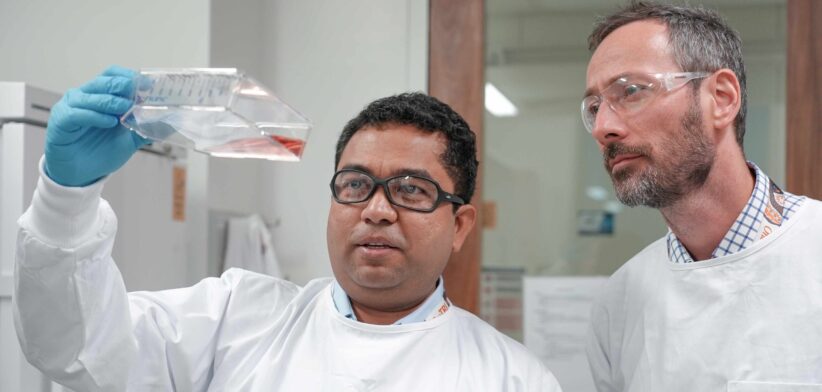The US Department of Defense is funding QUT researchers to develop new treatments for Parkinson’s disease.
Associate Professor Richard Gordon and his team from the QUT School of Biomedical Sciences were awarded $4 million in grants to expand their Parkinson’s research program and test innovative new approaches to slow or stop the disease, including targeting the gut microbiome and gut-brain axis.
Parkinson’s disease affects millions of people worldwide and is the fastest growing neurological disorder globally, with the increase in prevalence being linked to chemical exposures from industrialization, and occupations where chemicals are frequently used, such as farming, firefighting, and military service.
“Emerging evidence suggests that many of the known pathological features of Parkinson’s, such as unresolving inflammation and activation of the immune system, are closely linked to an imbalance of microbes in the gut,” Professor Gordon said.
“This unresolving inflammation, over a prolonged period, has been shown to damage the vulnerable dopamine-producing neurons that are gradually lost in people with Parkinson’s.”
Professor Gordon said the research team, which is based at the Translational Research Institute, would use a combination of human patient studies and disease models to identify new classes of drugs as treatments for Parkinson’s disease.
“We will also develop engineered microbes as live biotherapeutics and test their potential to slow or stop Parkinson’s progression by altering the gut ecosystem and activating protective mechanisms across the gut-brain axis,” he said.
“Our data suggests that the pathways we’ve uncovered in Parkinson’s patients, have an important role in maintaining a healthy gut microenvironment and function as a protective brake to limit harmful inflammation in healthy individuals.
“Rather than taking the usual approach of blocking immune pathways that drive inflammation, our research will explore the potential of restoring the gut microbial ecosystem and harnessing protective factors lost in the disease to limit inflammation and prevent vulnerable neurons from degeneration.
“If our approach is successful, it will open new avenues by which we can attempt to slow or stop Parkison’s disease and improve the quality of life for millions living with this condition.”
The US Department of Defense has funded the research program for four years and it will build on work funded by The Michael J. Fox Foundation and Shake It Up Australia Foundation on the NLRP3 inflammasome and the gut microbiome in Professor Gordon’s group.
https://youtu.be/lG7tUVgkAsU








